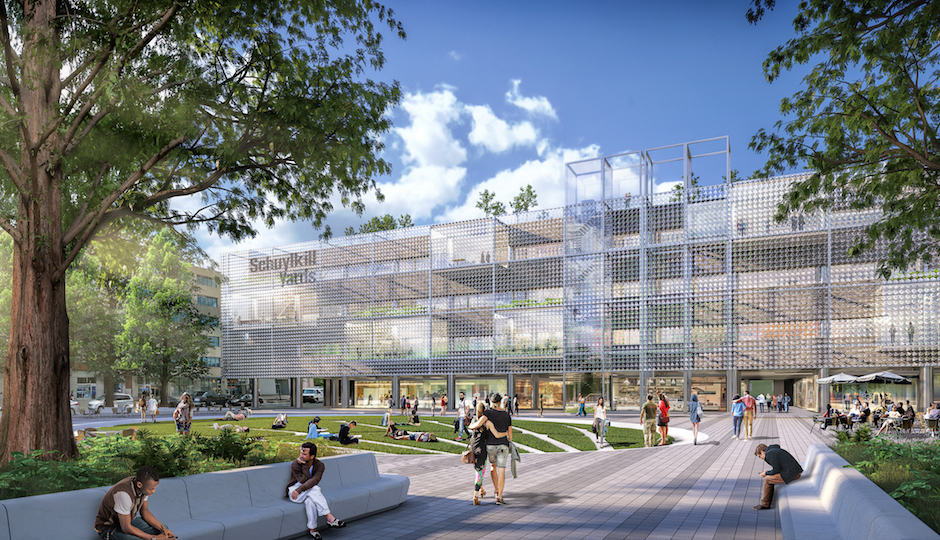U-City Named Hottest Tech Submarket in Nation

Strong demand and rising rents should make it easy for projects in the University City development pipeline, like the Schuylkill Yards joint venture between Drexel University and Brandywine Realty Trust, to find tech-sector tenants to fill them, if the latest CBRE “Tech-Thirty” report is any guide. | Image: SHoP Architects and West8
Those shiny new buildings rising in University City are not only turning it into Philadelphia’s second downtown — they’re making it the nation’s hottest submarket for high-tech office space, according to CBRE’s annual “Tech-Thirty” survey.
The survey, which examines job growth and technology office space rent growth in the nation’s 30 largest technology employment centers, put the area surrounding Drexel University and the University of Pennsylvania at the top of the list for office rent growth — the average rent of $41.40 per square foot is up 37.8 percent over the two-year period from the second quarter of 2014 to the second quarter of 2016 — and in growth of net absorption (the amount of space on the market that gets occupied), it ranked second only to Tempe, outside Phoenix, with a growth rate of 23.3 percent over that same period.
CBRE Vice President Rija Beares said in a news release, “The great news is that Philly tech is still in an expansionary period and is not experiencing sublease space hitting the markets like some of the larger tech cities. The biggest standout is University City with rent growth and increased activity as well as a vigorous development pipeline with Drexel and Brandywine Realty Trust’s Schuylkill Yards and University of Pennsylvania’s Pennovation Center.”
What makes this performance even more noteworthy is that Philadelphia is actually a laggard among large high-tech centers. In terms of job growth, the Philadelphia metropolitan region brings up the rear among the 30 top technology centers in the country, and in terms of overall tech-market rent growth, the city is sixth from last.
“Philly is a little different from most tech cities in that much of the tech is in the suburbs because of taxes and the fledgling public-private partnerships,” said Rija Beares, vice president at CBRE’s Technology and Media Practice office in Wayne. Offsetting this in University City’s favor is intense competition for space among a number of knowledge-industry sectors.
“U-City is developing into a tacit knowledge cluster for tech, med-tech and life sciences, and those companies that need to be there are willing to pay the higher costs for new construction,” said Beares. “The balance of the market tends away from new construction, and therefore, the rents are not as high.”
Beares sees the outlook for the tech sector within the city as improving, though. “Pennovation Center and Schuylkill Yards and the general re-urbanization will drive more growth as tech companies make the decision to move or open satellites in the city,” she said. “The real driver is going to be talent [that] wants to live and work in the city.”


